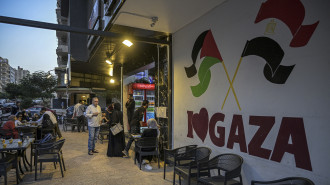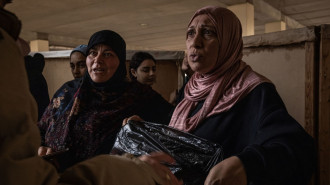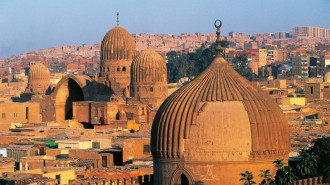Tunisian film's Islamist focus causes controversy
Ever since Moncef Barbouch's latest film was catapulted into the the limelight a few weeks ago, Conflict has attracted a huge amount of controversy in the director's home country, Tunisia.
Criticism has been mostly directed at the political message of the film. Some have dismissed Conflict as a weak and ideologically charged film, and Tunisia's much-loved film festival in Carthage has chosen not to screen the film. Those defending Conflict, however, say it was excluded for political reasons.
The film is essentially a sympathetic portrayal of Tunisia's Islamist party, the Ennahdha Movement, and the ordeal of its members. Ennahdha was a banned political party under the rule of former Tunisian dictator Zine El Abidine Ben Ali until he was ousted 2011 in the Jasmine Revolution.
The film captures the gradual disillusionment of the Tunisian people with the "November regime" in the early 1990s. It is evident from the premise of the film that the director himself was shaped by these experiences and he too worked as an Islamist activist during the Ben Ali era. His activism under the authoritarian regime ultimately lead him into exile.
It appears that Barbouch perhaps meant to produce an epic work that explains the early setbacks for the Islamists.
Although he does bring other leftist and nationalist opponents of the regime into the picture, the focus on Ennahdha - through the main protagonists of the film is Mustafa (Saleh Jday), a professor and Islamist activist, along with his wife, a musician, and his son - at times brings the film close to becoming a piece of propaganda.
| My film became hostage to the elections. Its content was a source of great concern to politicians. - Moncef Barbouch |
Torture is another theme that features heavily in the film, highlighting just how widespread the practice was by Ben Ali's security forces. Many scenes in the films are set in prisons and torture rooms.
Speaking to al-Araby al-Jadeed about the film's exclusion from the Tunisian film festival on the grounds of being a "weak production", Barbouch insists that the decision of the festival's directors was political.
"My film became hostage to the (recent presidential) elections. Its content was a source of great concern to politicians and some filmmakers, especially those who had been expelled by the revolution only to return through the elections," he says.
Barbouch, who is also a prolific documentary film maker, is currently working on a new production which he says will be about the life of Bchira Ben Mrad, a pioneer of the Tunisian feminist movement.
This article is an edited translation from our Arabic edition.
Opinions expressed in this article remain those of the author and do not necessarily reflect the opinions of al-Araby al-Jadeed, its editorial board or staff.

![Palestinians mourned the victims of an Israeli strike on Deir al-Balah [Getty]](/sites/default/files/styles/image_684x385/public/2024-11/GettyImages-2182362043.jpg?h=199d8c1f&itok=xSHZFbmc)


![The law could be enforced against teachers without prior notice [Getty]](/sites/default/files/styles/image_684x385/public/2178740715.jpeg?h=a5f2f23a&itok=hnqrCS4x)
 Follow the Middle East's top stories in English at The New Arab on Google News
Follow the Middle East's top stories in English at The New Arab on Google News


